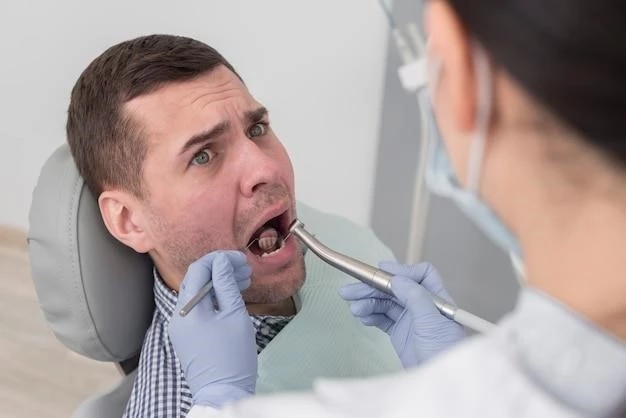Introduction to Oral-Pharyngeal Disorders
Oral-Pharyngeal Disorders encompass clinical disorders affecting the oral, pharyngeal, and esophageal motility processes. These disorders manifest in various ways, such as difficulty in swallowing, muscle movement impairments, and complications linked to the respiratory system. Understanding these conditions is crucial for effective diagnosis and treatment.
Overview of Clinical Disorders
Clinical disorders of oral, pharyngeal, and esophageal motility encompass a range of conditions affecting the processes of swallowing and muscle movement. These disorders can present as dysphagia, muscle weakness, or complications related to respiratory health. Understanding the nuances of these disorders is essential for accurate diagnosis and effective treatment.
Types and Prevalence of Oral-Pharyngeal Disorders
Oral-Pharyngeal Disorders encompass clinical conditions such as dysphagia, oropharyngeal dysphagia, muscle movement impairments, and complications related to the respiratory system. These disorders vary in prevalence and can have significant impacts on an individual’s overall health and quality of life.
Dysphagia⁚ Difficulty in Swallowing
Dysphagia, characterized by difficulty in swallowing, can range from mild to severe, impacting individuals across various age groups. Commonly associated with oropharyngeal dysphagia, this condition can lead to complications like malnutrition, dehydration, and respiratory issues. Understanding the causes and symptoms of dysphagia is crucial for effective management and improving quality of life.
Oropharyngeal dysphagia typically stems from disturbances in the oral preparatory, oral, and pharyngeal phases of swallowing. This condition can arise from various factors, such as neurological disorders affecting swallowing muscles. Common symptoms include difficulties initiating the swallowing process, leading to food retention in the pharynx and potential complications like aspiration pneumonia. Early identification and management of oropharyngeal dysphagia are essential for improving patients’ quality of life.
Impact of Oral-Pharyngeal Disorders
The impact of oral-pharyngeal disorders can range from difficulties in swallowing and respiratory complications to malnutrition, dehydration, and potential aspiration pneumonia. Effective management is crucial in mitigating these consequences and improving patients’ quality of life.
Oropharyngeal Dysphagia⁚ Causes and Symptoms
Oropharyngeal dysphagia can arise due to various factors affecting the oral preparatory, oral, and pharyngeal stages of swallowing. Common causes include neurological disorders impacting swallowing muscles, leading to symptoms like difficulty initiating swallowing, food retention in the pharynx, and potential risks of aspiration pneumonia. Timely identification and understanding of these causes are essential for effective management of oropharyngeal dysphagia.
Collaborations between respiratory and swallowing disorder societies highlight the unrecognized prevalence of swallowing disorders in chronic respiratory conditions. Screening for swallowing disorders in patients with respiratory diseases can lead to earlier detection and improved management, reducing the risk of associated complications like aspiration pneumonia.

Diagnosis and Screening of Oral-Pharyngeal Disorders
Effective diagnosis and screening of oral-pharyngeal disorders involve comprehensive evaluations like swallowing examinations and assessments. Dentists play a crucial role in oral cancer screening, contributing to early detection and management of potential disorders. These procedures are essential for ensuring proper care and treatment for individuals with such conditions.
Relationship with Respiratory Diseases
The collaboration between respiratory and swallowing disorder societies emphasizes the underestimated prevalence of swallowing disorders in chronic respiratory conditions. Screening for swallowing disorders in patients with respiratory diseases can lead to early detection and optimal management, reducing the risk of complications like aspiration pneumonia.
Role of Dentists in Oral Cancer Screening
Oral cancer screening exams conducted by dentists involve a thorough assessment of the mouth’s interior to detect any abnormal tissue changes, such as red or white patches and sores. Early identification of potential oral cancer through these screenings is crucial for prompt intervention and improved patient outcomes.
Treatment and Management Approaches
Rehabilitation measures for swallowing disorders focus on dietary modification and training in specific swallowing techniques. In more severe cases, surgical or therapeutic interventions may be necessary to address underlying issues and improve patients’ swallowing function and overall quality of life.
Rehabilitation Measures for Swallowing Disorders
Rehabilitation measures for swallowing disorders often involve dietary modifications, speech therapy, and exercises to improve muscle coordination. These approaches aim to enhance swallowing function and restore proper oral-pharyngeal motility, ultimately improving the individual’s ability to swallow safely and effectively.
Surgical and Therapeutic Interventions
Severe cases of oral-pharyngeal disorders may require surgical interventions such as myotomy or dilation procedures to address structural abnormalities affecting swallowing function. Therapeutic interventions like neuromuscular electrical stimulation or botulinum toxin injections can also be utilized to improve muscle coordination and swallowing efficiency in patients with these disorders.

Prevention and Care Strategies
Lifestyle factors like smoking and alcohol consumption can impact oral health, potentially leading to oral-pharyngeal disorders. Maintaining good oral hygiene through regular dental check-ups and practicing proper hygiene habits are vital in preventing these disorders and promoting overall oral health.
Lifestyle Factors Affecting Oral Health
Lifestyle factors such as smoking, alcohol consumption, and poor diet can significantly impact oral health, predisposing individuals to oral-pharyngeal disorders. Maintaining a healthy lifestyle, including regular exercise and a balanced diet, is crucial in preventing the onset of these disorders and promoting overall oral health.
Importance of Oral Hygiene in Disease Prevention
Maintaining good oral hygiene practices, including regular brushing, flossing, and dental check-ups, is crucial in preventing oral-pharyngeal disorders. Poor oral hygiene can lead to various conditions impacting oral and pharyngeal health, emphasizing the significance of preventive care strategies to promote overall well-being.
Research and Advancements in Oral-Pharyngeal Disorders
Studies on oral hygiene and mental health disorders reveal the importance of proper dental care in individuals with mental health issues. Emerging trends focus on enhancing the diagnosis and treatment of oral-pharyngeal disorders to improve overall health outcomes.
Studies on Oral Hygiene and Mental Health Disorders
Recent studies have highlighted the link between proper oral hygiene practices and mental health disorders. Maintaining good oral care routines can have a positive impact on individuals with mental health conditions, emphasizing the importance of oral health in overall well-being.
Emerging Trends in the Diagnosis and Treatment of Oral-Pharyngeal Disorders
Ongoing advancements focus on improving diagnostic techniques such as dynamic imaging studies and pharyngeal manometry to enhance the accuracy of diagnosis in oral-pharyngeal disorders. Novel treatment approaches incorporating tailored therapeutic interventions and personalized care plans are being developed to optimize patient outcomes and quality of life.
